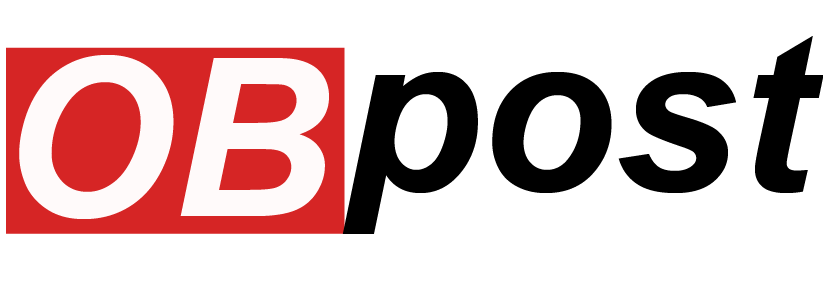Bodybuilding Naturally Building Muscle Without Steroids

What is Bodybuilding?
Bodybuilding isn’t just about lifting heavy weights—it’s a holistic approach to muscle growth, nutrition, and overall wellness. While the media often associates bodybuilding with extreme supplements or steroids, there’s a rising trend of natural bodybuilding that proves you can achieve an impressive physique without relying on artificial enhancements.
This guide will walk you through the essentials of bodybuilding, including its history, key techniques, diet strategies, and workout principles. Whether you’re new to the gym or a seasoned lifter, you’ll find valuable tips to optimize your muscle growth, burn fat, and maintain your health.
At its core, bodybuilding is all about muscle hypertrophy—fancy speak for building muscle mass through consistent training and proper nutrition. Unlike strength-based sports like powerlifting, which prioritize raw strength, bodybuilding focuses on sculpting the body to achieve muscle definition, balance, and proportion.

Natural vs. Enhanced Bodybuilding: What’s the Difference?
Natural Bodybuilding
Natural bodybuilding revolves around discipline—no steroids, no performance-enhancing drugs, just hard work, proper training, and a clean diet.
Enhanced Bodybuilding
On the other hand, enhanced bodybuilding involves the use of anabolic steroids or growth hormones, substances that come with significant health risks and side effects.
If you’re interested in building muscle the safe and sustainable way, natural bodybuilding is the path for you.
A Brief History of Bodybuilding
Bodybuilding’s roots trace back to the late 1800s, with Eugen Sandow, who is often referred to as the “Father of Modern Bodybuilding.” Over the years, bodybuilding grew in popularity, especially with figures like Arnold Schwarzenegger who helped push the sport into mainstream culture. However, as the sport evolved, the use of steroids became more widespread, creating a negative stigma around bodybuilding.
In response, natural bodybuilding federations emerged, advocating for a drug-free approach. These organizations promoted clean diets, effective training, and scientifically backed methods for muscle growth, helping change the narrative and prove that natural gains are both possible and sustainable.
Understanding Your Body Type: A Key to Success
Before diving into bodybuilding, it’s important to understand your body type. Why? Because your genetic makeup plays a role in how you gain muscle and lose fat.
- Mesomorphs: Naturally muscular with broad shoulders, mesomorphs tend to excel in bodybuilding due to their balanced physique.
- Ectomorphs (Hardgainers): Ectomorphs are lean and often struggle to gain muscle mass. But with a high-calorie diet and the right training, they can still build impressive muscle.
- Endomorphs: Endomorphs typically gain fat quickly but can still build muscle with disciplined training and a careful diet.
Understanding your body type isn’t a reason to make excuses—it’s about playing to your strengths and adjusting your workout and diet plan to get the best results.
Fueling Muscle Growth: The Importance of Nutrition
Proper nutrition is the foundation of any successful bodybuilding program. Without the right fuel, your muscles won’t grow, and your progress will stall. Here’s a breakdown of what you need to know:
Macronutrient Breakdown for Muscle Growth
To build muscle, you need to ensure that your body is getting the right balance of protein, carbohydrates, and healthy fats.
- Protein (40%): This is essential for muscle repair and growth. Lean meats, fish, eggs, and plant-based proteins are all great sources.
- Carbohydrates (40%): Carbs provide the energy needed to power through intense workouts. Whole grains, sweet potatoes, and brown rice are all great choices.
- Healthy Fats (20%): Healthy fats support hormone production, including testosterone, which plays a key role in muscle growth. Avocados, nuts, and olive oil are excellent sources.

Meal Timing and Frequency
Rather than eating just three large meals a day, aim for 5-6 smaller meals. This keeps your body in an anabolic state (the phase when muscle growth occurs) and prevents muscle breakdown throughout the day.
The Glycemic Index (GI) Matters
Foods with a low-GI (like quinoa or brown rice) offer sustained energy, while high-GI foods (such as white bread) cause insulin spikes, which can lead to fat gain.
Training Smart: The Science Behind Weightlifting
To build muscle effectively, you need to understand key principles of training:
Progressive Overload
This is the foundation of muscle growth: gradually increasing the weight, reps, or sets you do in your workouts. By challenging your muscles over time, you force them to adapt and grow.
Focus on Compound Exercises
Instead of just isolating muscles, prioritize compound movements—exercises that work multiple muscle groups at once. Squats, deadlifts, and bench presses are perfect examples. They recruit more muscle fibers, leading to greater overall muscle growth.
Rest and Recovery
Believe it or not, muscles don’t grow while you’re lifting weights—they grow when you’re resting! Proper sleep, hydration, and active rest days are crucial for muscle recovery and growth.
Creating the Right Workout Routine
Your workout routine should be tailored to your fitness level:
- Beginners (3-4 days/week): Focus on full-body workouts or upper/lower body splits.
- Intermediate Lifters (4-5 days/week): A Push/Pull/Legs split can help target muscle groups effectively.
- Advanced Lifters (5-6 days/week): At this stage, focus on targeted muscle group splits to enhance muscle isolation and symmetry.
Post-Workout Nutrition
After a tough workout, your muscles need fuel to recover. A combination of high-quality protein and fast-digesting carbs will help replenish glycogen stores and jumpstart muscle repair.
Lifestyle Matters: Stress, Sleep, and Hydration
Building muscle goes beyond just workouts and meals. Your overall lifestyle plays a huge role in your progress:
Managing Stress
Chronic stress leads to the release of cortisol, a hormone that breaks down muscle tissue and can increase fat storage. Combat stress with regular sleep, meditation, and relaxation techniques.
Hydration and Recovery
Drinking plenty of water—around 3-4 liters a day—helps muscle function, digestion, and recovery. It’s essential to stay hydrated for optimal muscle performance.
Avoiding Bad Habits
Habits like drinking alcohol or smoking can sabotage your muscle-building efforts. Alcohol lowers testosterone levels, and smoking restricts blood flow, limiting muscle growth.
Tips:
- Training: Focus on progressive overload and compound exercises.
- Nutrition: Balance your diet with protein, healthy carbs, and fats, and focus on meal timing.
- Recovery: Get enough sleep, manage stress, and stay hydrated to support muscle growth.
- Consistency: Building muscle takes time, but with patience and dedication, natural bodybuilding can lead to lasting, sustainable results.
Read Also : Aerobic Exercises: Benefits, Examples, and How Much You Need








